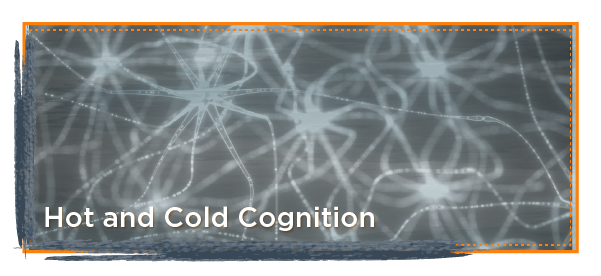Emotions, or the physiological states that arouse them, are often what power motivation. As leaders, human motivation must become an important part of our understanding because ultimately, leaders are interested in influencing others toward purposeful action. It’s arguable whether we motivate others or if motivation is only an intrinsic dynamic, but it’s important to understand what type of thinking goes into motives.
Almost 35 years ago, Ross Buck of the University of Connecticut, a leading figure in human emotion and motivation study at the time, said, “Psychology has rediscovered emotion.” He said this because the preceding 25 years of human motivation study were keenly focused on “cold cognition,” referring to information processing, reasoning, and the “logical” brain functions. It was believed that there must be logical, rational reasoning driving most if not all human motivation.
To be clear, we’re talking about no more than 50 years ago – and while that may seem like a long time to us, in the grand scheme of psychology, emotion, and motivation study, it is not; in fact, the past 50-75 years have uncovered more insight into the human condition than any other period of time. Just 50 years ago, emotions were barely being recognized as a significant contributor to human motivation. Of course, back then people weren’t wrapped up in the drama of social media – watching the Tik-Tok videos of emotional behaviors so readily available on any cellphone, the Instagram and Snapchat comments, the Facebook rants … the list of emotional manifestations in contemporary life goes on and on.
At the time, Buck and other researchers were on the brink of reminding us all that “hot cognition” (referring to emotions and feelings) are at least half the equation toward fully understanding motivation, and that when both hot and cold cognition are present together, they present, as Buck said, “a bit like scrambled eggs where both the yolk and the whites are present but are very difficult, if not impossible to discern them separately.”
At Emergent, we write, coach, and train leaders in the field of Emotional Intelligence (EI) on a regular basis. We suggest that the balance between the rational and irrational brain is the key to EI. However, I absolutely love this framework of “hot and cold cognition.” As a leader, I’ve determined the following three insights from this reframing of our emotional and logical brains as “hot and cold,” and I’d like to hear yours in the comments section!
- Hot and cold can be thought of as extremes. Both can serve their purpose, but when it comes to leading and influencing people, being extreme rarely can be sustainable in any meaningful way. If we come across as too cold, we’ll miss appealing to others’ emotions; too hot, and someone is going to get burned!
- We can be bold and courageously authentic without being too hot or too cold. The people we lead want our authenticity – that’s why they are willing to follow us.
- So does lukewarm win the day? I’m not sure about this. I think as leaders we’re placed in yet another paradox that requires a “both-and” mindset. By neither reducing the intensity of our logical thinking nor missing out on our passion for people and things, we can have it all and lead with great influence.
Want to learn more about Emotional Intelligence and becoming a more influential leader yourself? Reach out to me at [email protected] so we can discuss your leadership development and aspirations!

Comments (4)
We need to be passionate, and show it, in order to motivate. However, we can’t be so passionate as to subvert those we are trying to motivate. When I’m really hot on something or really cold I want to use that as a motivational tool, along with data and other supporting information. But I what to be open and listen to those that I’m trying to motivate. If I don’t include that piece, I will surely not motivate everyone.
Thanks so much for reading my recent post Robert!
I love the way you framed motivation in your comment and I agree, we certainly can’t motivate everyone! I sometimes truly wonder if we motivate anyone at all but rather simply influence them to tap into their own intrinsic motivation.
I mean holding a gun to my head doesn’t really motivate me what it does is elicit my desire to survive and then intrinsically I choose to behave. Hopefully no one‘s holding guns to anyone but you know what I mean!
Marc Brackett, Founding Director, Yale Center for Emotional Intelligence and Professor, Child Study Center, Yale University, wrote a book “Permission to Feel” and he touches on these and many other related subjects. I think Bill points to a critical skill that may be learned and developed in high potential leader candidates.
Mark, thanks for reading my recent post and for your comments! “Permission to Feel” is a great recommendation. Thank you!
Hope you’re well and thriving Mark!